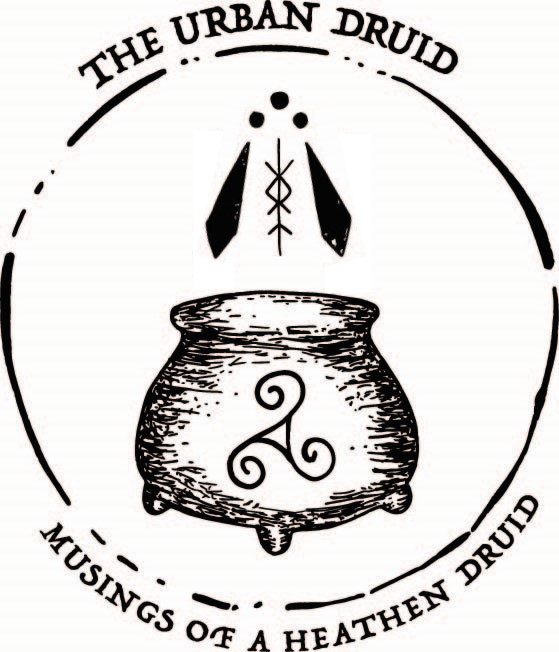In Latin, there is a word which is the basis of our use of the word hospitality: “hospes.” Hospes has three meanings: host; guest, visitor; stranger, foreigner. Hospitality comes from the root hospes and is one of the core concepts behind Indo-European interactions in our ancestors’ times.
Hospitality was ingrained into ancient societies. A visitor should be treated with respect and welcomed into one’s home and hearth. There were many reasons for this with three standing out: It could be a god or goddess visiting to test their followers; a positive interaction could have beneficial future outcomes in trading and alliances; a negative interaction could have serious ramifications for a chieftain, a household, or a village.
Many Indo-European myths have the gods taking the form of a man and, because of these myths, people would be careful when dealing with visitors in case it was a god who was visiting to see how followers would respect any visitors. In the myths, kindness and generosity towards visitors were rewarded and ill treatment towards visitors were punished.
Normally when visitors came to a village or a remote house, the inhabitants of the village or house from chieftain’s wives to housewives, they would be treated with honor and respect. Visitors tended to bring news and pass on news in their travels and some would repay hospitality with gifts, labor, or usually passing on favorable tales of the hospitality they received. There are tales of travelers who stayed with kings and kings would try to outdo the others to have their tales of their great deeds spread throughout their kingdoms and to other countries to encourage trade and other favorable views to be held towards them and their lands.
If a host gave ill treatment to their visitor, the news would spread which could ruin potential future trade–if a host couldn’t be trusted to respect and show hospitality to their visitor, then how would they treat someone who might want to trade? Such news and rumors would quickly spread as visitors traveled to other villages or kingdoms. This could hurt the economic viability of villages. Whereas acts of kindness could make a chieftain, acts of mediocre or poor treatment could mess with a village’s renown.
Guests were also expected to be gracious. The Hávamál (Wisdom from Odin) goes into details into how guests should behave when traveling with advice such as remain attentive, don’t talk too much (as in hog the conversation) but do share knowledge and information, and don’t drink too excess. Going back to the Latin word of hospes, the host/guest relationship is strongly connected.
Reciprocity is a key to helping understand the host/guest dynamic contained in the word hospes. By giving friendship, a warm fire, or food generously to your guest, they in turn would possibly reciprocate sometime in the future. While they might not have the same chance to be give you food, shelter, and friendly interactions, they might help you out in other ways. This is part of interacting with visitors in a hearth and home setting.
Through hearth goddesses, we can call upon the guidance and patience to take the peace they strived for with frith (peace within the family) and apply it to grith (peace in situations involving strangers or outsiders). Grith is all about hospitality and treating visitors with respect and generosity. If a guest breaks grith by being disrespectful, all pleasantries, safety, and hospitality can be removed. If a host breaks grith, word could quickly spread about how that village or chieftain treats visitors which could cause people to shun them.
As Frigg known as a goddess of hearth and home, she is a good choice to try to emulate when entertaining guests—whether in a settings where visitors are visiting your home or visiting your pagan group. She is the queen of Asgard, wife to Odin, which they would have viewed in daily life as a chieftain’s wife. Chieftain’s wives were recorded to act almost as a priestess in large feasts where they would bring around the horn almost as if it was a religious proceeding so the men could toast to their hosts and their host toast to them.
Grith is more than just keeping the peace or creating a place of sanctuary between allies, foes, or strangers. It is a situation where the host(s) try to make sure that the visitors are well taken care of, much in the way as described above as treating them as one would in case they could be a god coming to visit and test their generosity or someone who could end up spreading news about how someone treats a newcomer. Treating everyone who visits and who upholds the hospes act of both sides being good towards one another in a friendly manner by making their feeling of acceptance and being welcomed something that will carry forth when they tell others about your group.
Think about times you’ve visited groups you were unfamiliar with. What made the difference between feeling welcomed or unwelcomed? What did you tell others when you talked about your experiences? Did you tell them to go check out an unwelcoming group or did you advise them to steer clear of them? If the group was welcoming and showed great hospitality, how happy were you to spread the word of your experiences so that others could check out such a group?
It’s easy to think someone else will handle hospitality in a group setting, but looking back at past interactions with groups, in situations you didn’t really feel welcomed at, how many times did maybe only one or two people interact with you while otherwise you felt invisible because people were primarily talking with people they already knew? How excluded did you feel?
I know I’ve shared tales of visiting different spiritual groups. Some treated you almost like you were family, even if you were there to check things out and not necessarily desiring to become a member. Others I didn’t feel welcomed at all. When people would ask me about a certain group, I would steer people away from attending a group where they didn’t seem welcoming—sometimes they wouldn’t be welcoming to women or to people not of their faith or to significant others. Other groups would be welcoming and provide great hospitality towards all who visit.
Hospitality isn’t just for visitors either. Members who are unable to attend regularly can feel disassociated from a group and without hospitality, the group will slowly lose members who have difficulties attending as frequently as others. Welcoming back members who haven’t been around for a while and treating them just as well and making them feel just as important as those who are regulars is key to having positive words spread about one’s group.
When at a ritual or a blót, think of what it would feel like for you to be a first time visitor or someone who hasn’t been around for a while and feels like they aren’t quite a part of the group. How would it feel if you were in such a position and people came up and either introduced themselves or reintroduced themselves with the goal of making you feel included and truly part of the group? What would you say to others in your travels if someone asked about your particular pagan faith? Would you encourage people to come check it out?
Hospitality is such a core value to our ancestors that I feel if we are going to say we follow the old ways of the Heathens of old, we need to make sure visitors will spread that same message about us in a positive way. Who knows? Maybe a visitor might just be a god in disguise?


